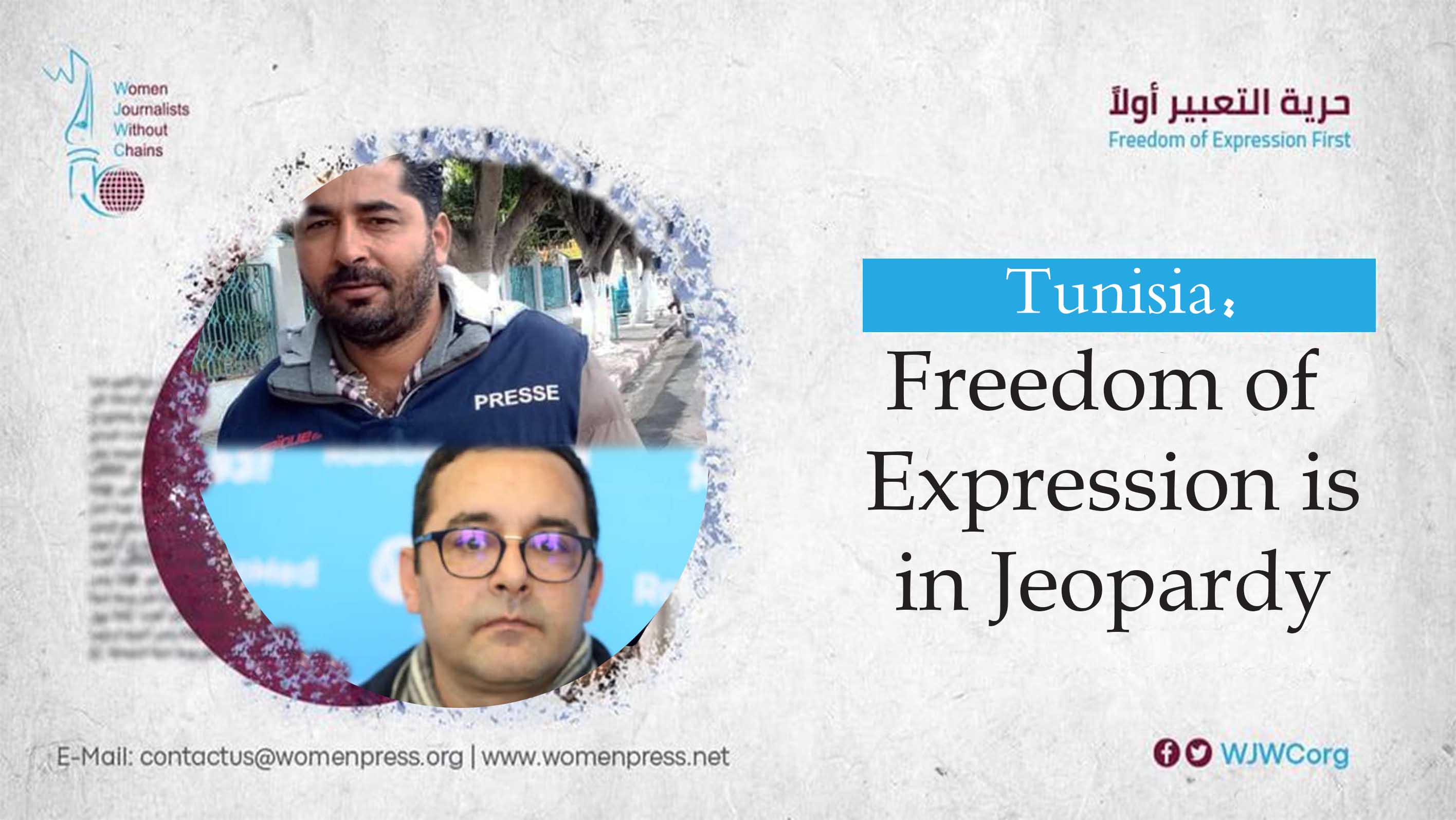Wjwc News

Tunisia: Freedom of Expression is in Jeopardy
Amid growing fears that new laws in Tunisia will be used to impose more restrictions on rights and freedoms across the country since President Kais Saied came to power in October 2019,
freedom of expression and the press is at stake, according to the Women Journalists Without Chains (WJWC).
The WJWC has indicated that Tunisia’s numerous media outlets have resorted to practicing self-censorship due to fear of government reprisal, arbitrary arrests and prosecution.
On charges of disclosing information and refusing to reveal his sources, the journalist Khalifa Guesmi was sentenced to one year in prison by Tunisian Court of First Instance’s criminal chamber competent to consider terrorism cases on November 29, 2022.
Guesmi, a correspondent for Tunisian radio station and news website Mosaique FM, was arrested for a week in March 2022 given the anti-terrorism law after publishing news related to the dismantling of a terrorist cell and the arrest of its members.
“We in the Women Journalists Without Chains strongly condemn the Tunisian authorities for using terrorism charges as a means to punish journalists and put pressure them to reveal their own sources of information”, said the human rights advocate in a statement.
On November 14, the director and editor-in-chief of the online Business News website, journalist Nizar Bahloul was also questioned about publishing an article about the government of Naglaa Boden and its poor performance.
In its statement, the WJWC has expressed solidarity with the refusal of the National Syndicate of Tunisian Journalists (SNJT) to these arbitrary sentences, considering them part of the regime’s restrictions on freedoms and rights and its continuous attempts to terrorize and silence media professionals.
The increasing prosecutions and investigations of journalists and activists in Tunisia, the organization continued, pose an threat to what’s left of gains achieved thanks to the Jasmine Revolution, including especially freedom of expression.
The organization has called for dropping all charges against Tunisian journalists and activists sentenced just for exercise of the right to freedom of expression and refraining from all judicial prosecutions that restrict their movements and journalistic work.
Finally, it has also called for overturning the notorious Decree No. 115 of November 2, 2011, on Freedom of the Press, Printing and Publishing, according to which the Tunisian authorities are suing journalists from various media outlets, as well as what was included in Decree-law No. 54 of 2022 on Combating IT and Telecom Crimes, as incompatible with the article “19” of the International Covenant on Civil and Political Rights, ratified by the Republic of Tunisia, and also with Articles “37, 38, and 55” of the Tunisian Constitution.
